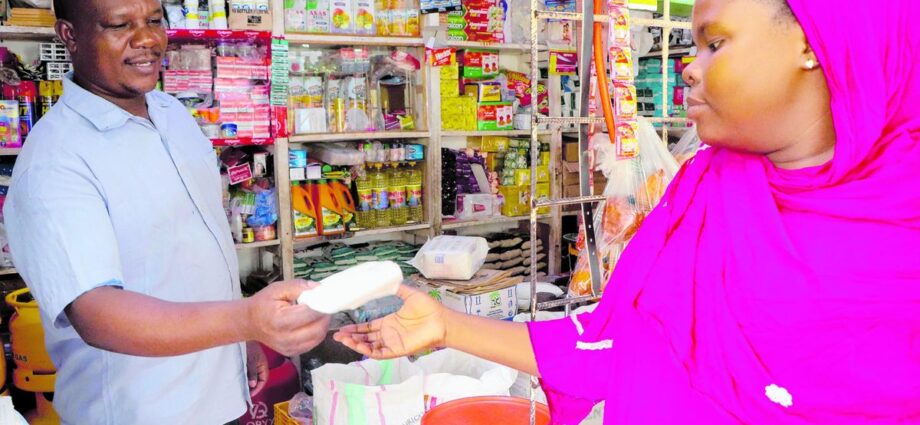There are various businesses such as mama/baba lishe (the roadside food vendors), hawkers or cottage industry, making ice cream at home, etc. Establishing a business with breaking even, survival, and later on the ability to make a living out of it, and taking that business to the next level is an uphill task.
There are numerous challenges every small business has to overcome. For instance, Dar es Salaam like any other African city experiences great business competition. While the government promotes the development of small businesses (entrepreneurship), compliance for small traders with very little capital is not so easy.
Take for example, a small trader who starts by making homemade ice cream using a neighbour’s freezer. The sweet talks between the two make the neighbour allow the small trader to leave the ice cream in the freezer for several hours and afterward rush out to sell the same. It sounds simple, but complying with regulations is cumbersome for a small trader and often impossible for such a trade.
It is such cases that make the informal sector in Africa to be huge. Often the formal sector and public service do not create adequate job opportunities. No wonder millions of youths in Africa often have two choices– continue tarmacking or get into the informal sector.
According to the International Labour Organization (ILO), over 60 percent of the world’s adult labour force participates in the informal economy.
That is about 2 billion workers, whereby some researchers tell us that the situation is worse in Saharan Africa and Latin America.
At global, regional, and national levels, it is a phenomenal problem that needs to be tackled by nations at the policy level.
But unemployment in Dar es Salaam, Dakar, or Nairobi is a daily reality, and many informal business owners struggle so hard to put three decent meals at their tables.
It is always encouraged to buy from small traders whenever you can, only if the quality of the products meets the required standard. For instance, if your neighbour is the best tailor, and you can decide that s/he sews clothes for you instead of buying big brands.
This makes a huge difference. The small-scale farmer, trying to start selling his pumpkins in Dar es Salaam, makes a huge difference in their lives when you buy and tell your neighbours about it.
Unfortunately, in Tanzania, people are not taught about business at primary school level, which might contribute more to the informal traders learning the hard way. One of the biggest problems is the inability to offer good customer care service.
The large firms in the city, some with near monopoly, can afford lopsided customer care service. But a small trader, s/he has to be highly courteous and exhibit all the custom care needed to get and maintain clients.
For an informal business to grow, apart from hard work, good supervision/management etc, among the keys is providing excellent customer care services. No matter the kind of business you are engaging in, providing good customer care services helps maintain such customers and make such a business grow.
As we celebrate customer service week, it is not only for the big business. Informal and small businesses need to ensure that their customers get satisfactory services. Sometimes we hear the abusive language at our markets.
This occurs when one negotiate something but end up not buying. Note that, customers determine the survival, growth, and your business success. So treat well your customers.
Share this news
This Years Most Read News Stories

Ankaya Village: Experience active living and wise investment in Zanzibar
Ankaya Village offers more than just a place to live—it’s a lifestyle choice that’s as enriching as it is rewardingContinue Reading

Tanzania Declares Marburg Outbreak – Africa CDC Mobilizes Immediate Response

Addis Ababa, January 20, 2025</Strong> — Tanzania has declared a Marburg virus disease (MVD) outbreak after confirming one case and identifying 25 suspected cases in the Kagera Region of Northwestern Tanzania. The Marburg virus, a highly infectious and often fatal disease, is similar to Ebola and is transmitted to humans from fruit bats and monkeys. This outbreak marks the nation’s second encounter with the deadly virus, following the outbreak in Bukoba District of Kagera Region in March 2023, which resulted in nine cases and six deaths.
In response to this urgent threat, the Africa CDC is mobilizing strong support to help Tanzania contain the outbreak. A team of twelve public health experts will be deployed as part of an advance mission in the next 24 hours. The multidisciplinary team includes epidemiologists, risk communication, infection prevention and control (IPC), and laboratory experts to provide on-ground support for surveillance, IPC, diagnostics, and community engagement.
The Director-General of Africa CDC, Dr. Jean Kaseya, has engaged with Tanzania’s President Samia Suluhu Hassan and the Minister of Health to ensure coordinated efforts and secure political commitment for the response.
“Africa CDC stands firmly with Tanzania in this critical moment. To support the government’s efforts, we are committing US$ 2 million to bolster immediate response measures, including deploying public health experts, strengthening diagnostics, and enhancing case management. Building on Tanzania’s commendable response during the 2023 outbreak, we are confident that swift and decisive action, combined with our support and those of other partners, will bring this outbreak under control,” Dr. Kaseya stated.
Africa CDC has recently supported efforts to enhance the diagnostic and sequencing capacity of public health laboratories in Tanzania. PCR Test kits and genomic sequencing reagents have been dispatched, with additional supplies in the pipeline. To ensure rapid identification and confirmation of cases, the institution will also provide technical assistance to strengthen detection and genome sequencing for better characterization of the pathogen. Additionally, support will be provided to improve case management protocols and enhance the capacity to deliver safe and effective treatment.
Africa CDC is committed to working closely with the Government of Tanzania, regional partners, international organizations, and global stakeholders, including the World Health Organization, to stop the spread of the Marburg virus.
Source: allafrica.com

US taps Tanzania for infrastructure plan in battle with China for minerals
Washington wants to tap into the country’s minerals, particularly its nickel mines.Continue Reading











